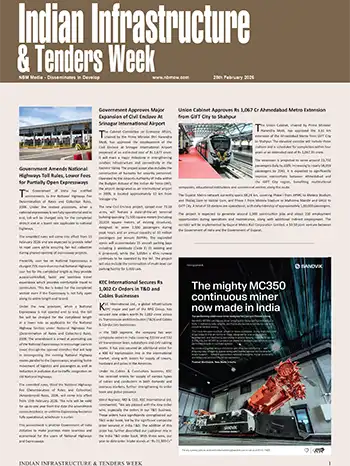Future technology trends in the real estate sector include smart homes, temperature control, smart lighting systems, security systems, data-driven property management systems, business process automation, and virtual property tours.
Agnelorajesh Athaide, Chairman, Global St. Angelo’s Group of Companies
Since the start of the Fourth Industrial Revolution, technology has seen a significant transformation. Virtually every sector, including Real Estate, has undergone diverse changes with the introduction of innovative technologies. In the real estate sector, these innovations have provided buyers with an abundance of options and enhanced comfort in selecting their desired property.
The integration of AI into real estate is reshaping property transactions, management practices, and urban development. From smarter property searches to accurate valuations and sustainable building management, AI is driving efficiency, transparency, and innovation in the industry. As AI technologies evolve, real estate professionals and consumers can anticipate a future where data-driven insights enable better decision-making and enhance the real estate experience.
Emergence of Artificial Intelligence in Real Estate Sector
Artificial Intelligence (AI) stands as a pivotal technological force reshaping the landscape of the real estate sector. Its integration has ushered in a new era characterized by automated processes, enhanced decision-making capabilities, and instantaneous access to market dynamics. Through intricate algorithms, AI processes extensive datasets, unveiling patterns and forecasting property values, giving real estate players valuable insights, and facilitating informed and strategic investment choices. Additionally, AI-driven chatbots are delivering prompt customer support.
As AI technologies evolve, real estate professionals and consumers can anticipate a future where data-driven insights enable better decision-making and enhance the real estate experience.
Enhanced Property Search
The convenience of online property listings and searches has simplified the lives of buyers while eliminating the need for intermediaries. The online platform for property search delivers personalized recommendations based on user preferences. By analyzing historical data, user behavior, and property attributes, these systems match buyers with listings that align with their needs. Moreover, AI assesses market trends and property values that help in informed decision-making for both buyers and sellers.
Virtual Tours and Visualization
Artificial intelligence (AI), virtual reality (VR), and augmented reality (AR) technologies facilitate virtual property tours. Prospective buyers can remotely explore properties, and access lifelike understanding of space, layout, and design. This virtual experience enables buyers to refine their choices before making physical visits to the properties.
Smart Homes
Home automation systems and devices like thermostats, security systems, and lighting controls not only elevate property value but also enhance the overall living experience of the occupants. Additionally, Internet of Things (IoT) sensors enable property management by facilitating remote monitoring of a property’s condition and performance.
Mobile Applications
Mobile Real Estate Apps offer on-the-go access to property listings, market trends, mortgage calculators, etc, making it convenient for buyers, sellers, and agents to stay connected and informed.
Efficient Property Management
By leveraging the power of artificial intelligence property owners can streamline various tasks from rent collection to maintenance scheduling and tenant communication. AI’s predictive analytics enhances efficiency by anticipating potential issues, allowing for proactive solutions, and minimizing disruptions for property owners and tenants alike. AI in property management not only automates routine processes but also contributes to a more responsive and agile real estate management system.
Impact of Blockchain on Real Estate Dealings
Blockchain technology has become increasingly influential within the real estate sector, presenting a framework for secure and transparent transactions. Blockchain helps establish tamper-proof property records, eradicating the need for intermediaries and streamlining the intricacies of title transfers. By bringing automation into contracts, paperwork is mitigated, and the pace of transactions is made faster. Moreover, the application of blockchain in real estate brings accuracy and security of property titles, thereby reducing risks of fraud and disputes.
Urban Planning and Development
AI analyzes urban data to optimize city planning and development. By considering traffic patterns, population growth, and environmental factors, AI guides city planners in making informed decisions about infrastructure projects and urban expansion.
Energy Efficiency and Sustainability
AI contributes to energy-efficient building management by optimizing heating, cooling, and lighting systems based on occupancy and external conditions. This not only enhances sustainability efforts but also reduces operational costs.
















